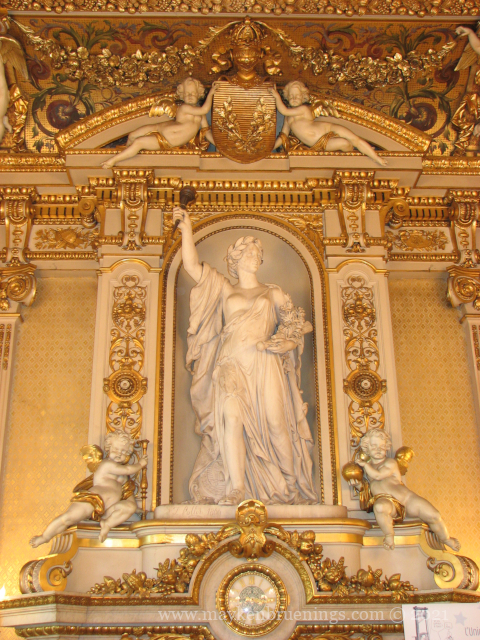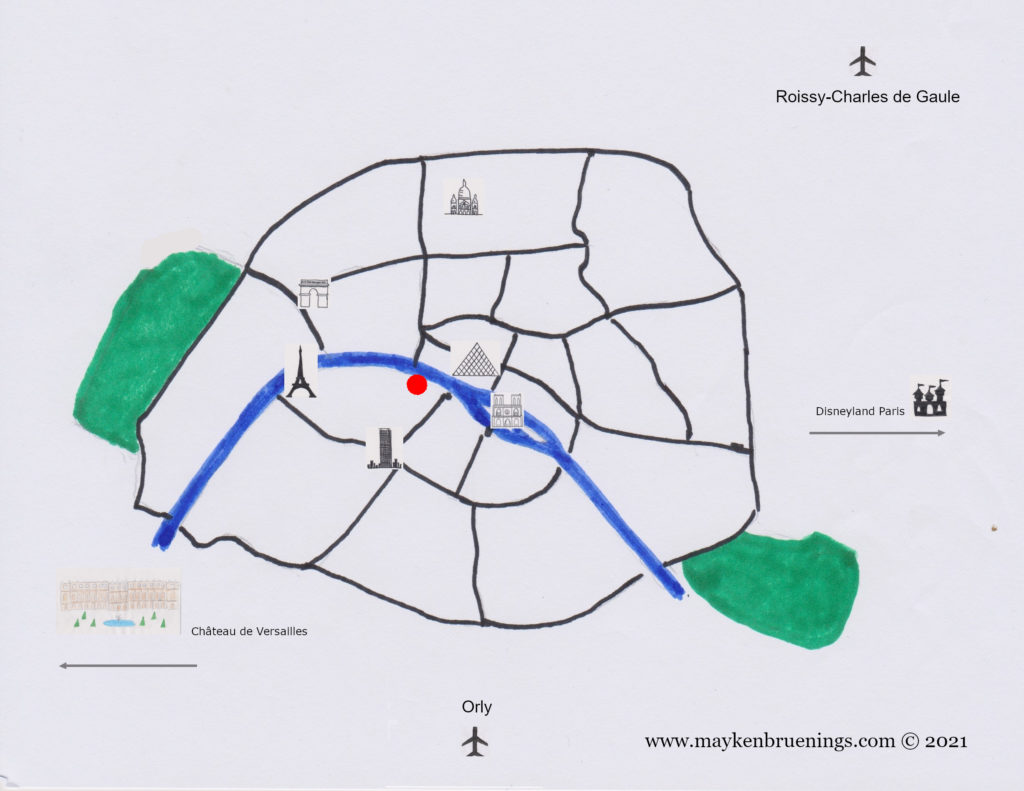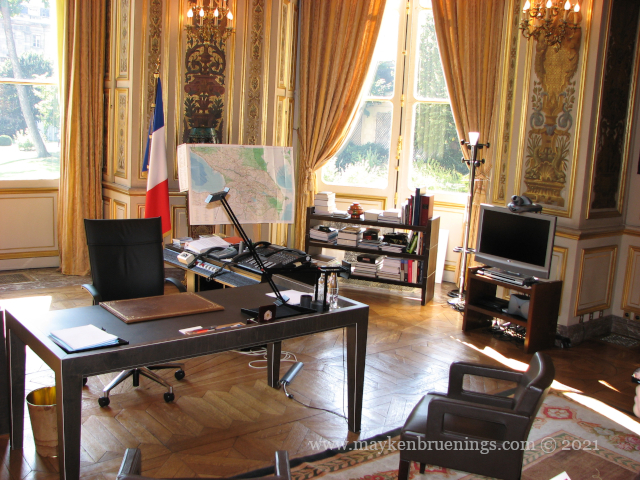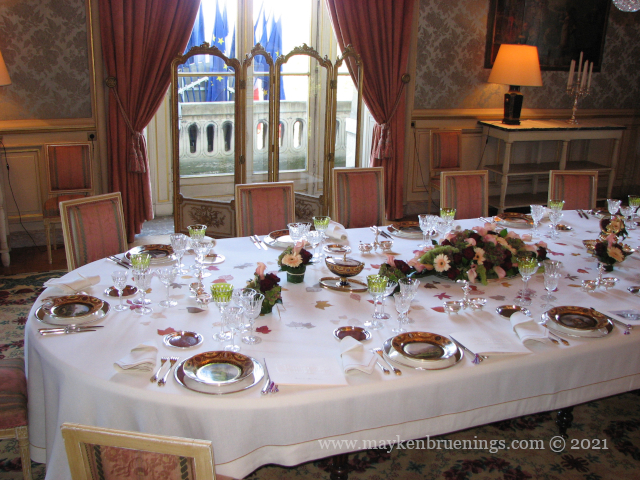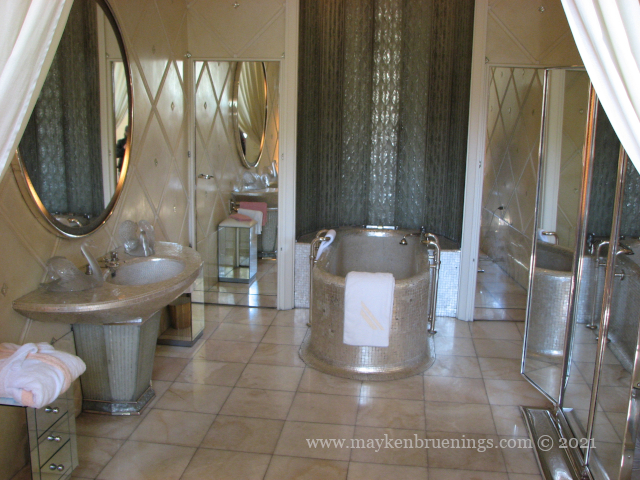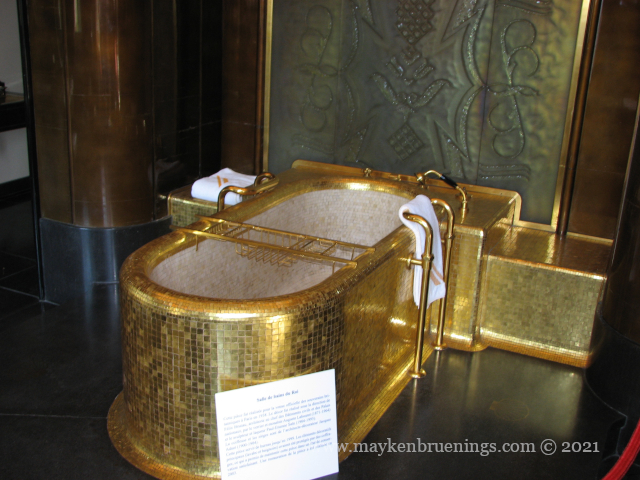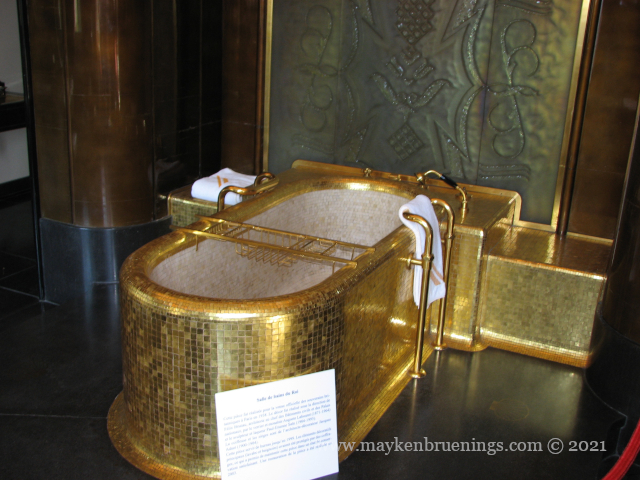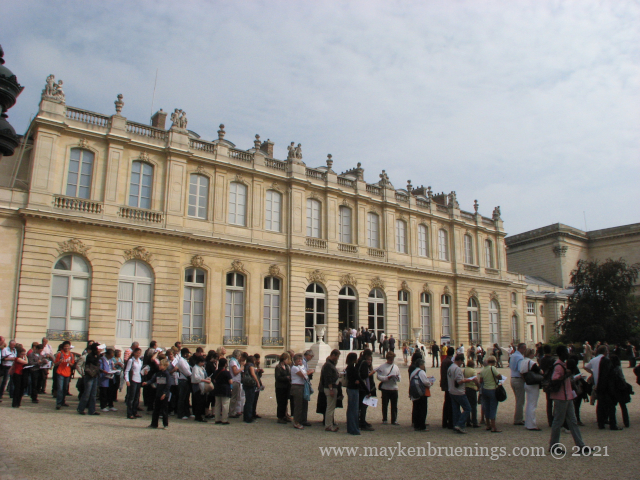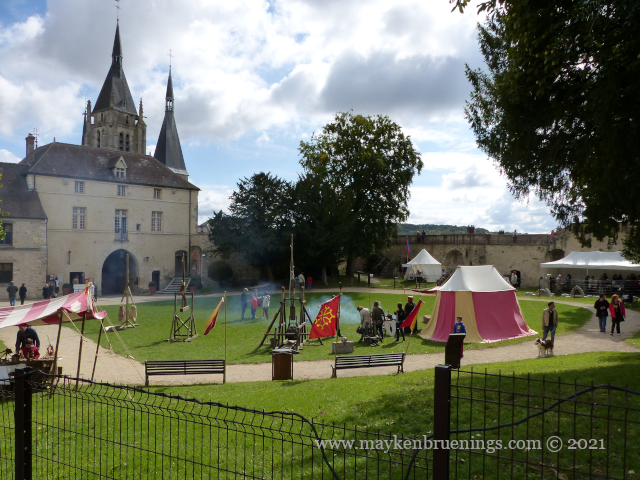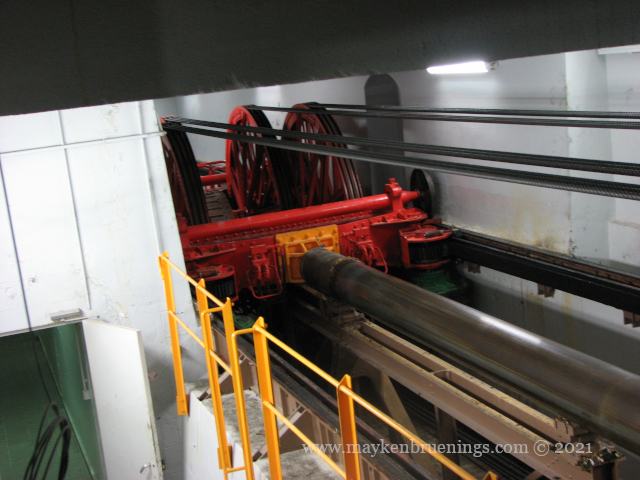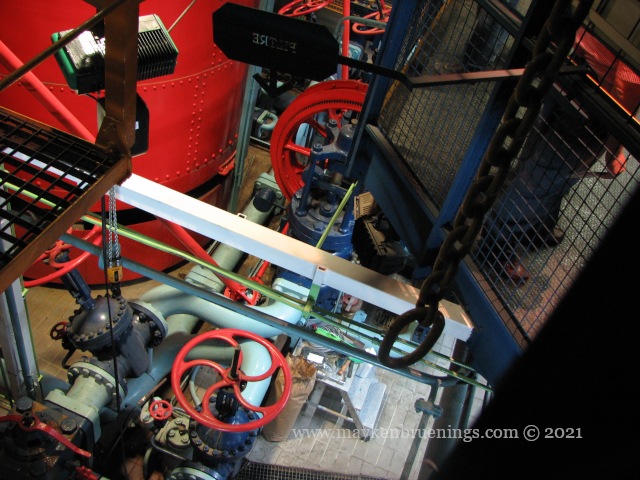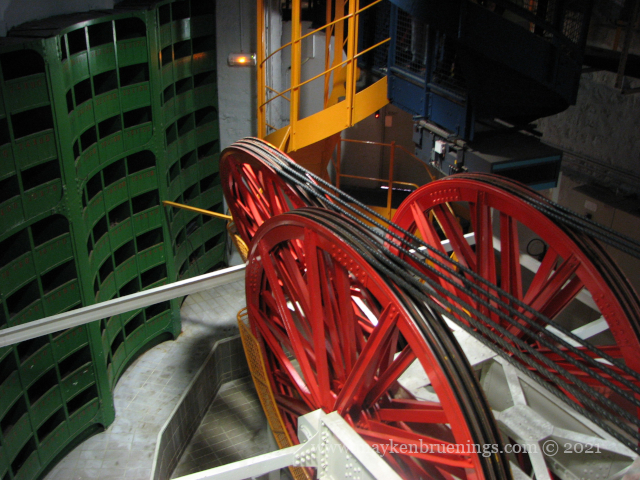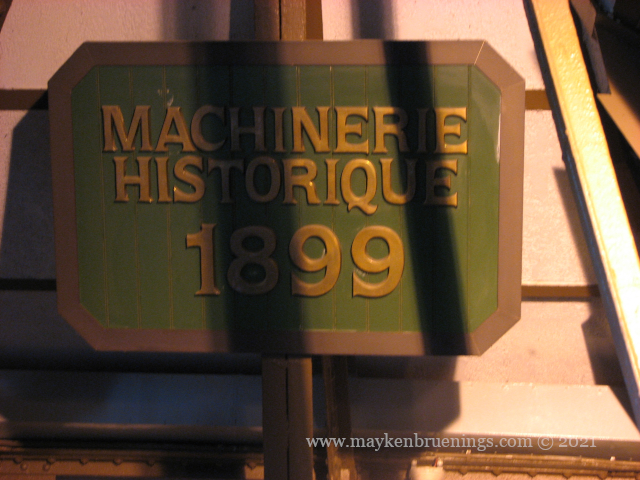As I explained in my previous post, on Heritage Days in September, doors are opened to the public that remain closed the rest of the year. Very popular places to visit are the presidential palace (Palais de l’Élysée) and the various ministries, housed in hôtels or palaces in the center of Paris.
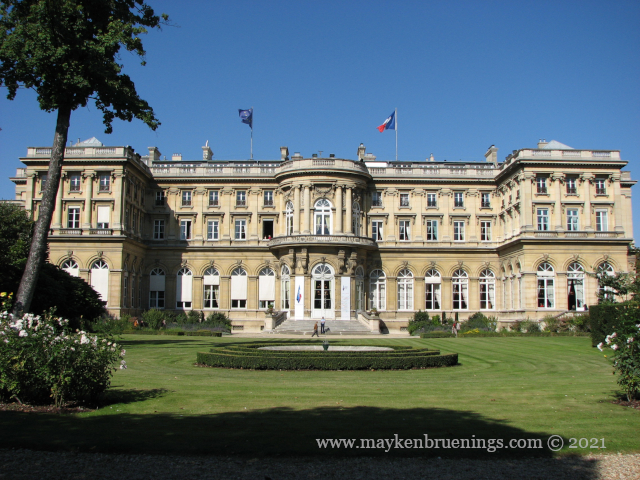
Several years ago, I visited the Ministry for Europe and Foreign Affairs in a building on the riverside road Quai d’Orsay, name which was transferred to the ministry by metonymy. “The Quay d’Orsay remained silent on this question”, a journalist might report.
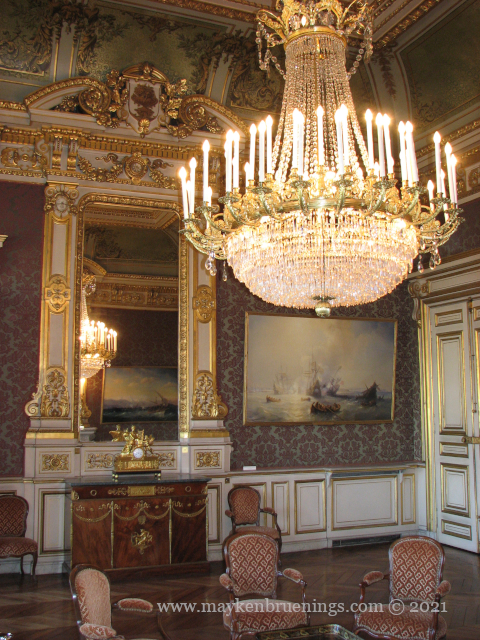
King Henry II (son of François Ier) named the first minister of foreign affairs in 1547, Claude de l’Aubespine. The function was called Secretary of State, and Claude was in charge of the relations with Champagne, Burgundy, Bresse, Savoy, Germany and Switzerland. (He started small.)
The Quay d’Orsay was built in 1844-55 specifically to house Foreign Affairs. The interior is in the style of Napoléon III, with the exception of the bathrooms set up in 1938 for the visit of King George VI and his wife Queen Elizabeth (parents and predecessors of Queen Elizabeth II).
In the Salon de l’Horloge, then-Foreign Affairs minister Robert Schuman pronounced on May 9, 1950 the Schuman Declaration, which laid the foundation for the European integration process resulting in the European Union. This is why May 9 is Europe Day.
